Resource Management In Operating System
Resource management in operating system. Therefore the operating system has to manage all the processes and the resources in a convenient and efficient way. The OS manages how software processes share the systems resources. Computer programs may manage their own resources by using features exposed by programming languages or may elect to manage them by a host an operating system or virtual machine or another program.
The objective is to allocate resources so as to optimize responsiveness subject to the finite resources available. We present Gdev a new ecosystem of GPU resource management in the operating system OS. It is the responsibility of operating system to ensure that all programs requesting resources are getting resources in a timely manner.
Operating system resource managers prioritize resource allocation within a global pool of resources usually a domain or an entire system. You will learn how deadlock is characterized as well as the concept of resource allocation policy as it relates to the problems of deadlock. For example most software needs to save data to a storage device such as a hard disk.
This talk proposes a scheme for addressing the operating system resource management pro. He gave this talk in 2014. Host-based management is known as resource tracking and consists of cleaning up.
Central performance to assigning particular system resources to Processing Unit CPU random access. Resource management is key function of Modern Operating systems Barebones OSs and Hypervisors. It allows the user space as well as the OS itself to use GPUs as first-class computing resources.
This post will discuss about what is an Operating System OS how it manages Hardware Resources its functions types and how it works in your computer. Processes are assigned to groups which are in turn assigned resources anywhere within the resource pool. Academic Year 2020-21 OS resource management techniques Resource management is the dynamic allocation and de-allocation by an operating system of processor cores memory pages and various types of bandwidth to computations that compete for those resources.
Resource Management in the Rialto Operating System Michael B. In computer programming resource management refers to techniques for managing resources components with limited availability.
Modern computers can be abstracted in CPU capacityCPU cycles available Memory Capacity StorageDisk Capacity and Network capacity.
It includes both preventing resource leaks releasing a resource when a process has finished using it and dealing with resource contention when multiple processes wish to access a limited resource. One of the functions of the operating system is to provide for an orderly and well controlled allocation of the processors memory and other resources among the programs or applications that may be competing for them. For example most software needs to save data to a storage device such as a hard disk. It allows the user space as well as the OS itself to use GPUs as first-class computing resources. It includes both preventing resource leaks releasing a resource when a process has finished using it and dealing with resource contention when multiple processes wish to access a limited resource. It allows the user space as well as the OS itself to use GPUs as first-class computing resources. What is an Operating System OS An Operating System OS is a powerful program that manages and controls the software and hardware on a computing device so as to make the device behave in a predictable but flexible way. We present Gdev a new ecosystem of GPU resource management in the operating system OS. We present Gdev a new ecosystem of GPU resource management in the operating system OS.
The operating system must manage the use of hardware resources so that software can complete its tasks. Modern computers can be abstracted in CPU capacityCPU cycles available Memory Capacity StorageDisk Capacity and Network capacity. Resource management is a vital task of all operating systems. The commonly required resources are InputOutput devices Memory file storage space CPUCentral Processing Unit time and so on. Each program running on a computer is known as a process. Academic Year 2020-21 OS resource management techniques Resource management is the dynamic allocation and de-allocation by an operating system of processor cores memory pages and various types of bandwidth to computations that compete for those resources. For example most software needs to save data to a storage device such as a hard disk.
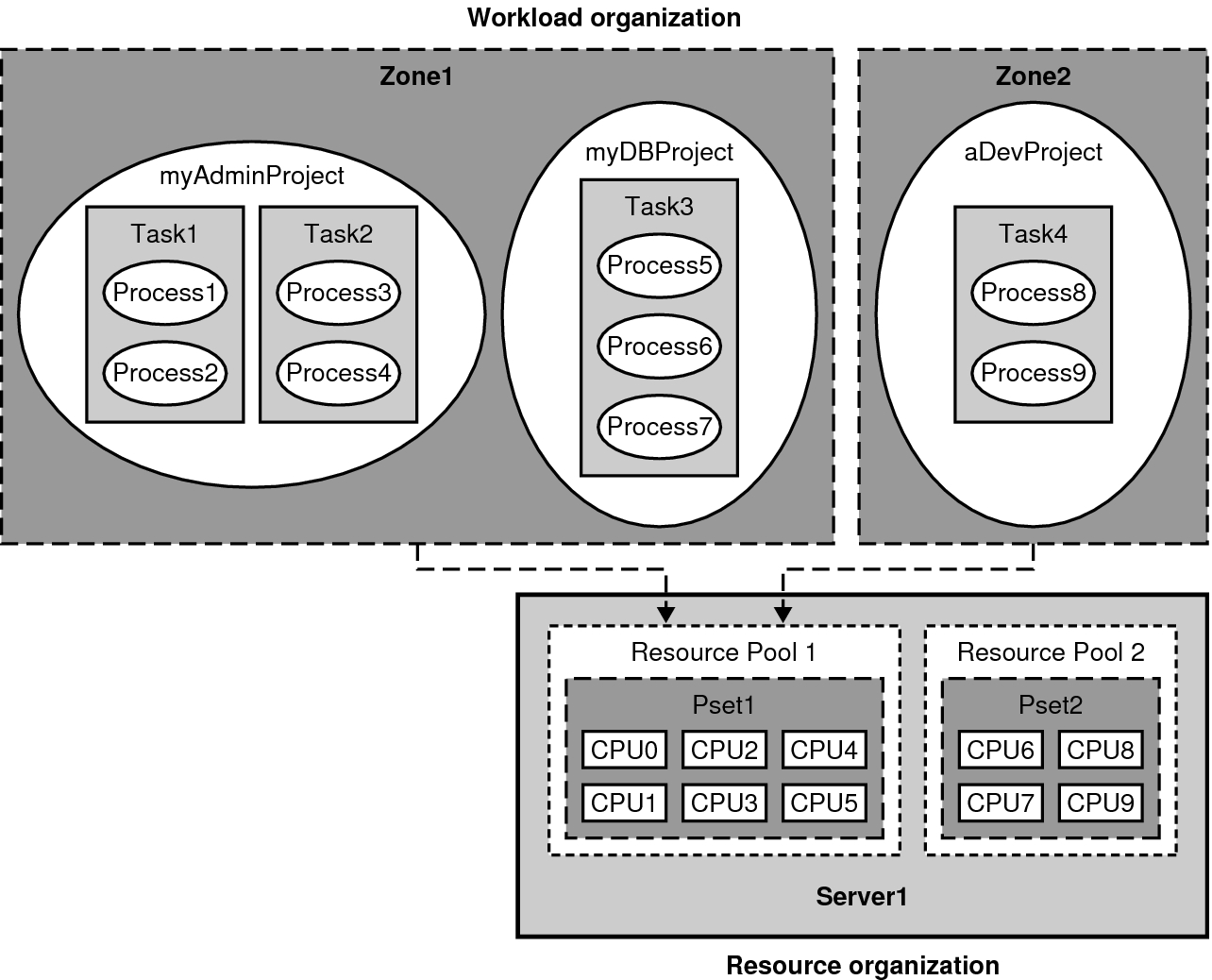
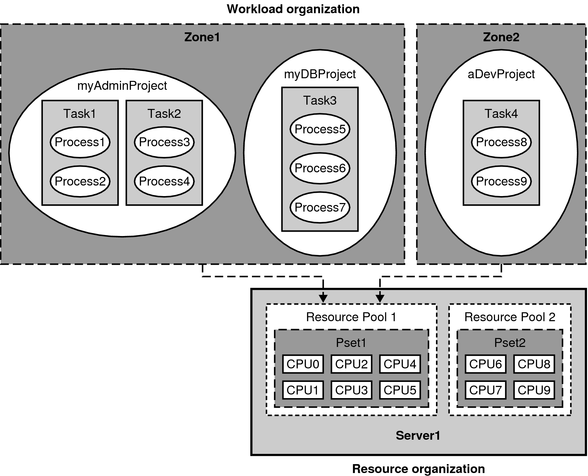






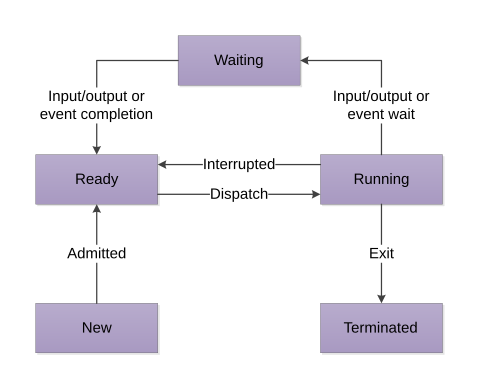



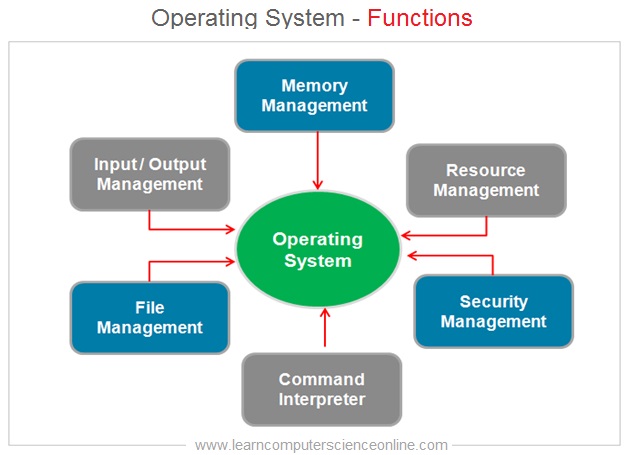
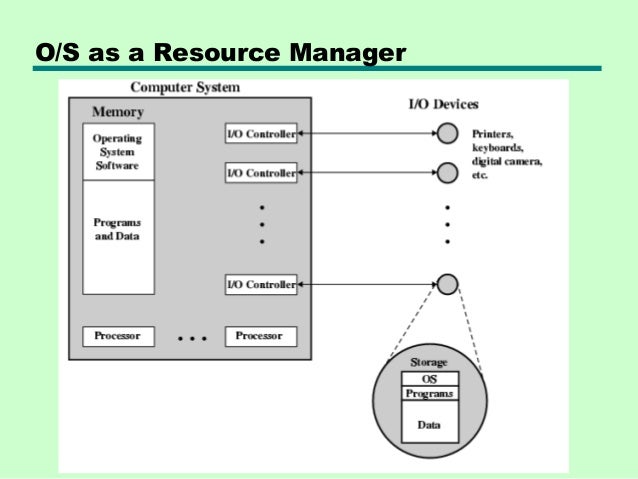






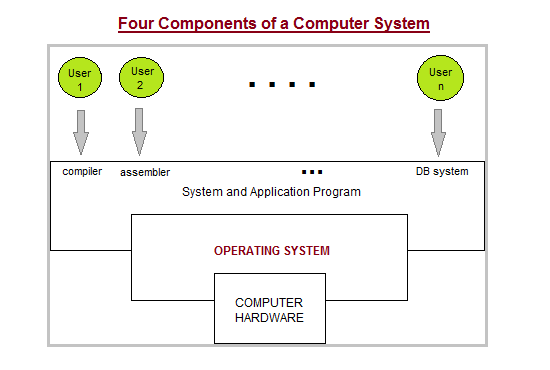







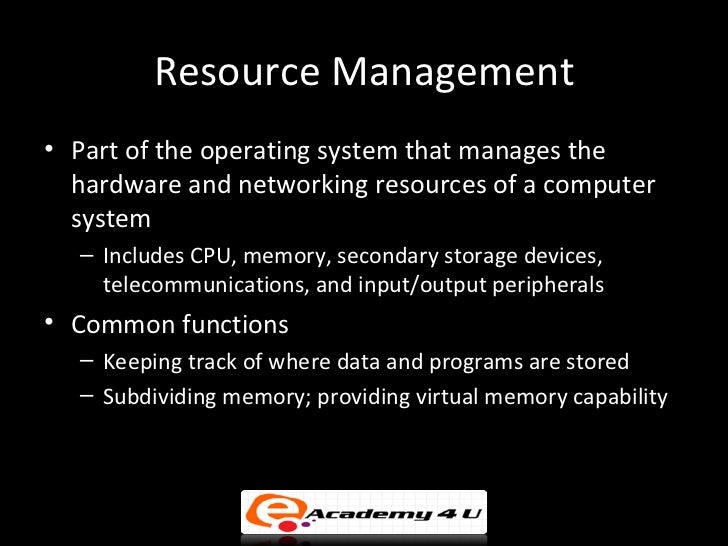




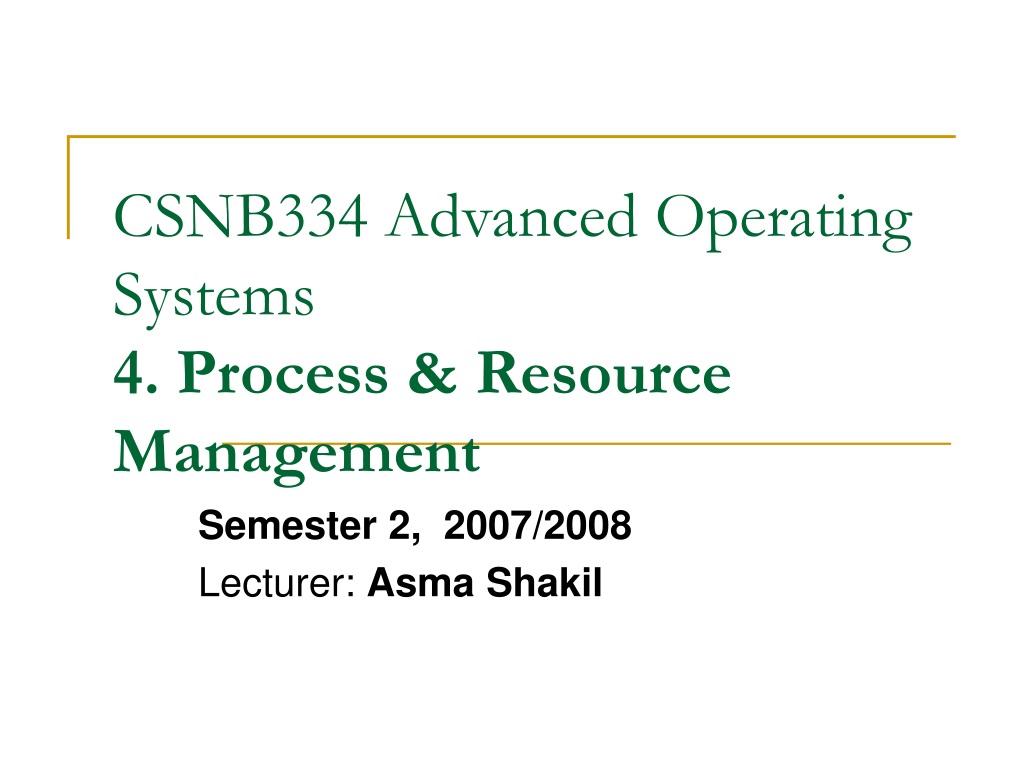
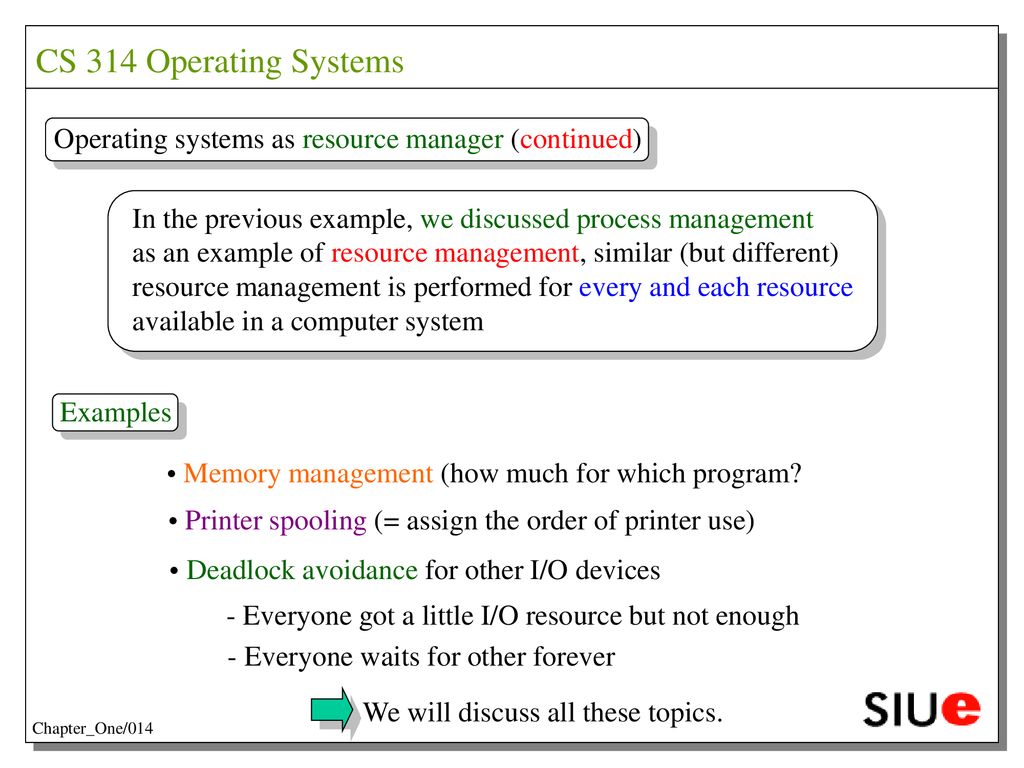



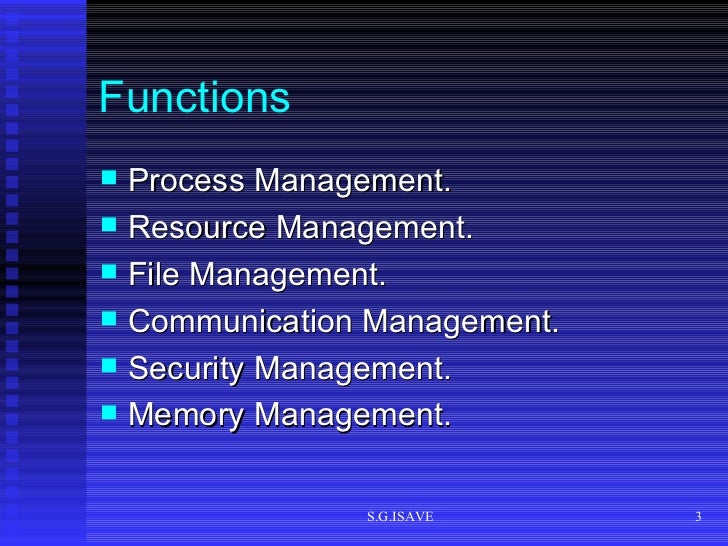








Post a Comment for "Resource Management In Operating System"